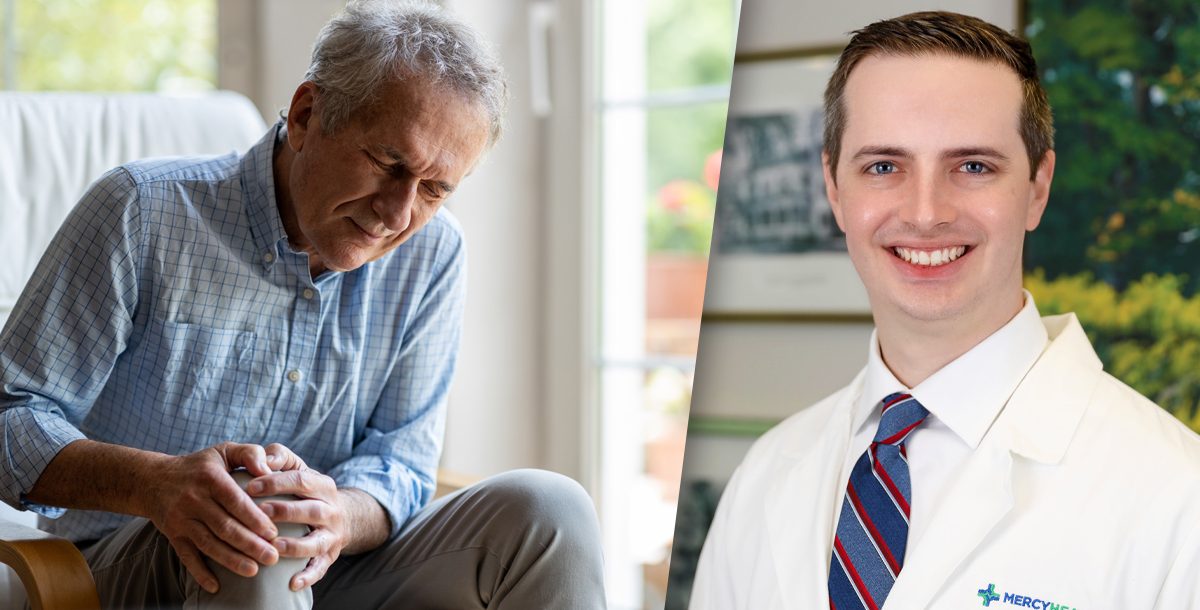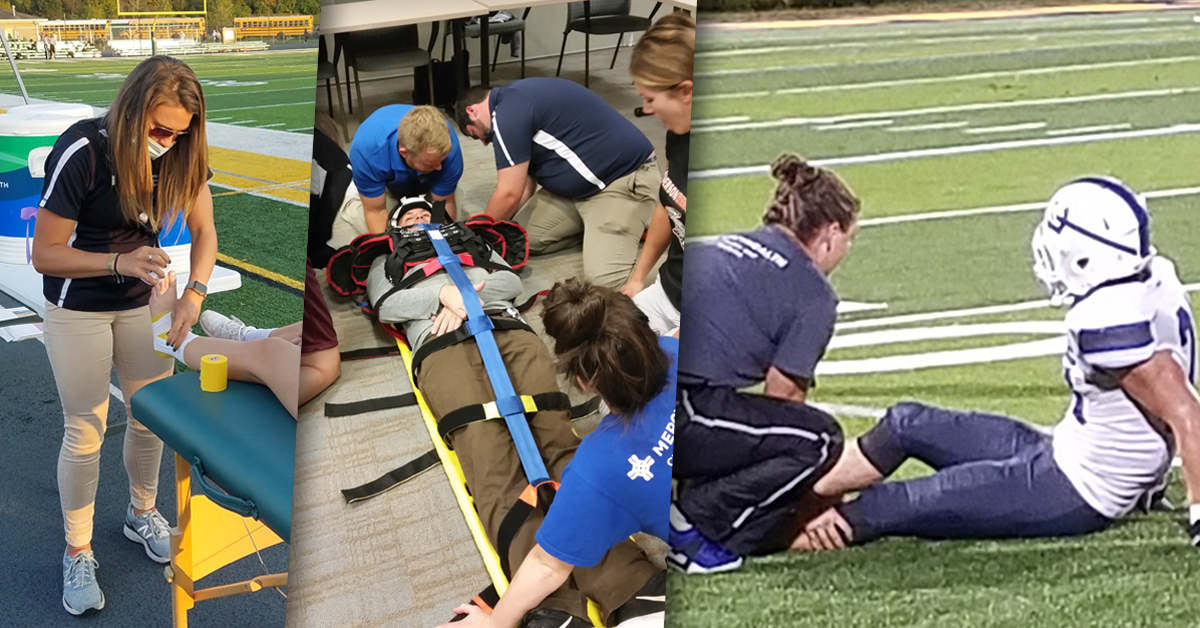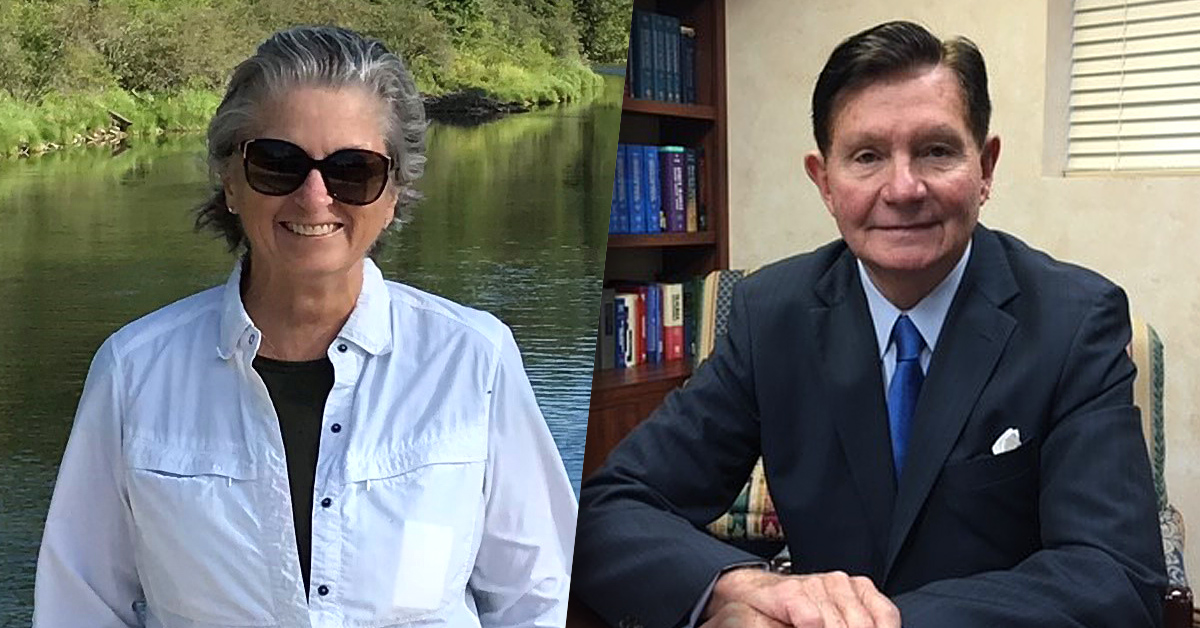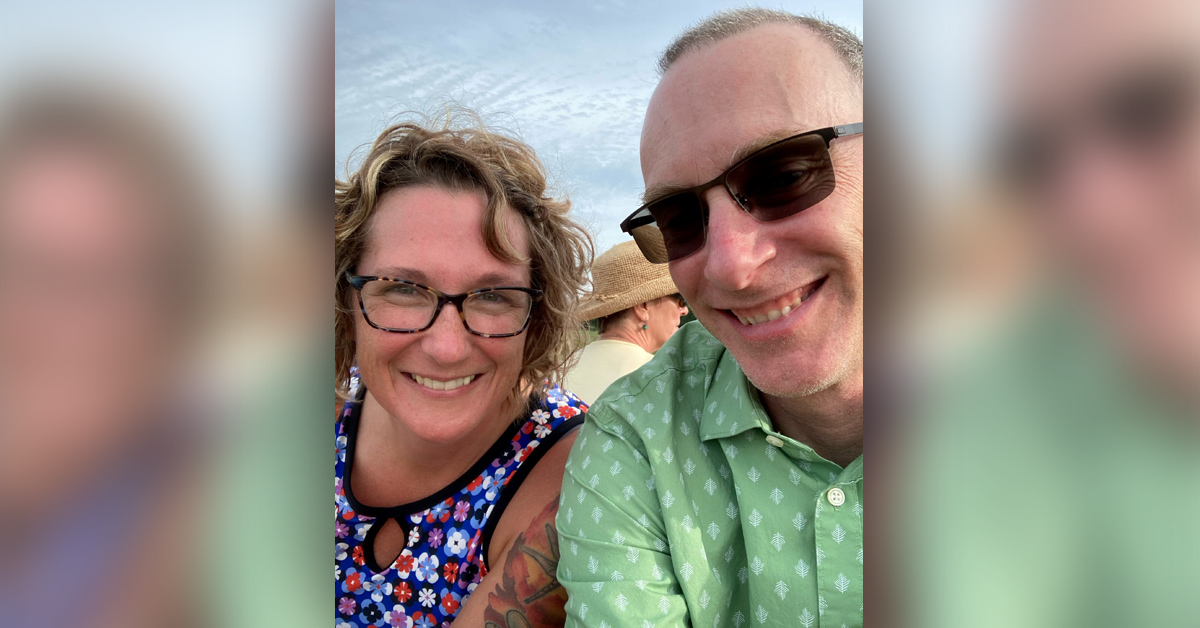Just because you don’t play sports doesn’t make you immune to knee injuries.
In fact, we recently asked Andrew Kalthoff, DO, an orthopedic surgeon (pictured above, right), about the three most common non-sports related knee injuries he treats.
“Meniscus tears, cartilage damage as well as muscle and tendon injuries are the top three knee injuries that my patients need treatment for,” Dr. Kalthoff reveals.
Meniscus tears
The meniscus acts like a cushion to protect the cartilage lining of your knee joint. These tissues can tear as we age, and it dries out. Actions as simple as stepping and turning, or deep bending your knees, can cause a tear. Meniscal tears will cause pain to the joint line of your knee, and bigger tears can even prevent you from fully moving your knee.
Cartilage damage
This results from arthritis as we age, a wear-and-tear type issue for the knee. The cartilage in our joints does not regenerate like other tissues in our body. So, once you lose the cartilage, it is gone. Your body responds to the loss of cartilage by forming more bone and osteophytes, also known as bone spurs. They have a lot of nerve endings and thus can be quite painful.
Muscle and tendon injuries
This is another common condition that comes with age. We lose flexibility in our muscles as we age, unless you focus on maintaining your flexibility with stretches and exercise. When you stretch a muscle or tendon too far, or put too much force across the muscle, it can tear.
While we can’t stop getting older, there are ways to help prevent injury before it happens.
“Daily consistency with motion, strength and flexibility will maintain the health of your joints,” Dr. Kalthoff explains. “Moderation is vital to joint health. We know that joint cartilage thickens with moderate exercise and motion.”
And fortunately, if you do end up with a knee injury, there are treatments available to get you back to normal. These plans vary based on the severity of the injury, how the injury occurred as well as the patient’s overall health profile. And luckily, Dr. Kalthoff says most of these injuries can be treated without surgery.
“Physical therapy, rest, ice, anti-inflammatory medicines like ibuprofen or Aleve and time will usually resolve a large portion of these problems,” he shares.
But, unfortunately, for some patients this is not enough.
“In the setting of arthritis or cartilage problems, we cannot reverse those problems, but we can substantially improve the inflammation and the strength of the injured joint,” Dr. Kalthoff says. “We consider surgery when patients fail nonoperative care, or with more severe injuries that likely won’t improve on their own.”
Surgery includes arthroscopic treatments for the meniscus and cartilage damage, and even joint replacement options for more severe arthritis/cartilage damage. Arthroscopic treatment of knee injuries offers several advantages to traditional open techniques. The arthroscope allows us a better visualization of the injured tissues in hard-to-reach areas, such as the back part of the meniscus in the knee.
“Arthroscopic treatment allows me to use specialized tools to treat complex meniscus tears through incisions smaller than the width of your thumb,” Dr. Kalthoff shares. “Current technology available to treat meniscus tears is advanced and allows me multiple options and techniques to repair and save meniscal tissue as opposed to trimming them out.”
As for a knee replacement, Dr. Kalthoff can use a robotic navigation system to fine tune the bone preparation to the individual patient and reduce the amount of soft tissue releases he needs to do. This usually helps patients feel better a little earlier than traditional techniques.
Overall, we at Mercy Health are proud to offer surgeons access to the most advanced tools and technology available to treat injuries patients suffer. We also have a robust network of nonoperative services, such as excellent physical therapists and equipment, to help patients recover well from a surgical procedure, or even prevent the need for surgery in the first place.
Learn more about the orthopedic services we offer in our Cincinnati market.






